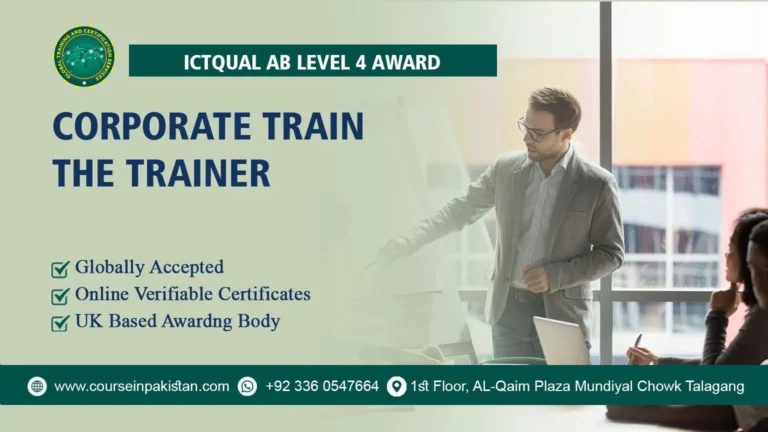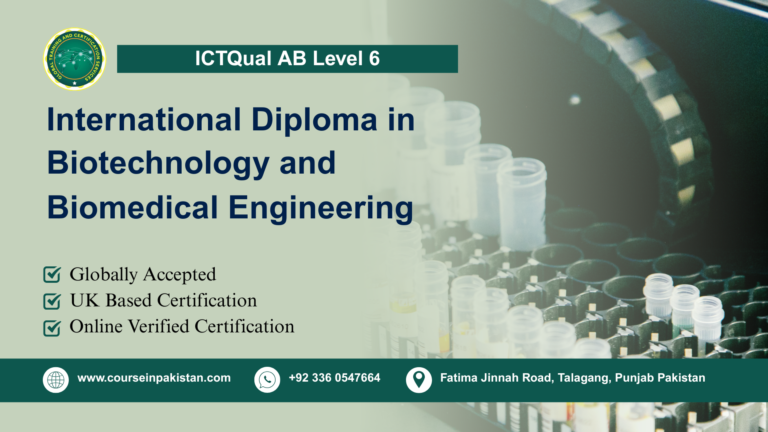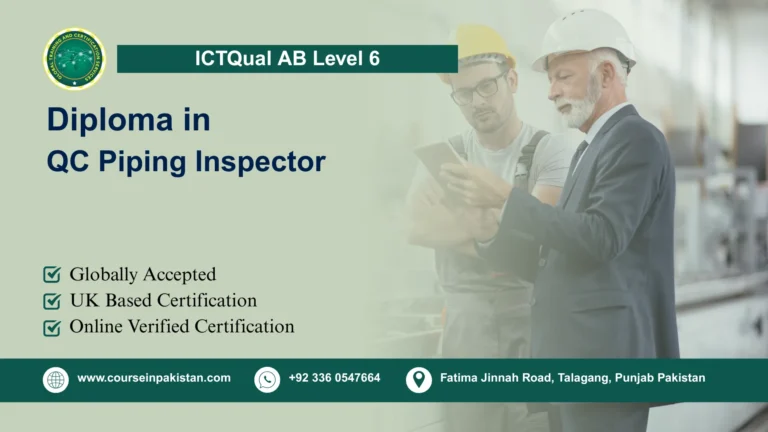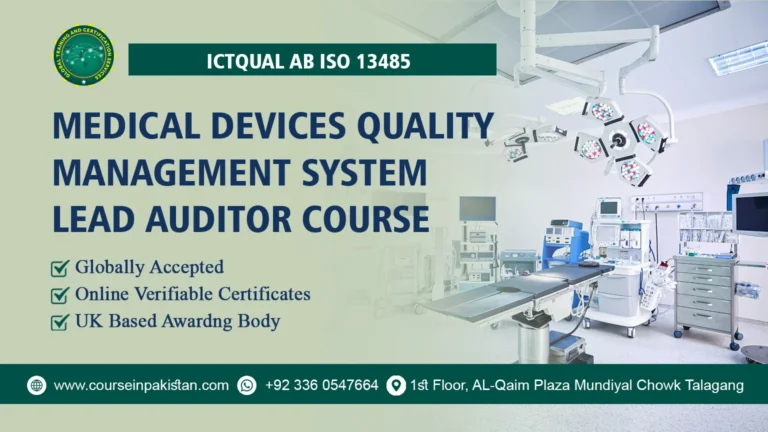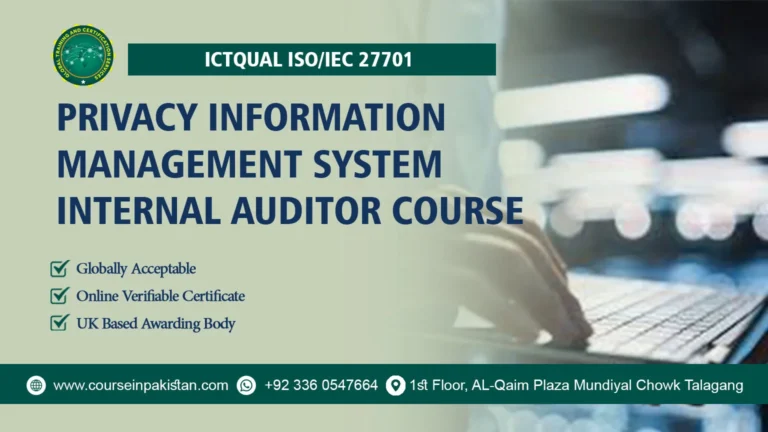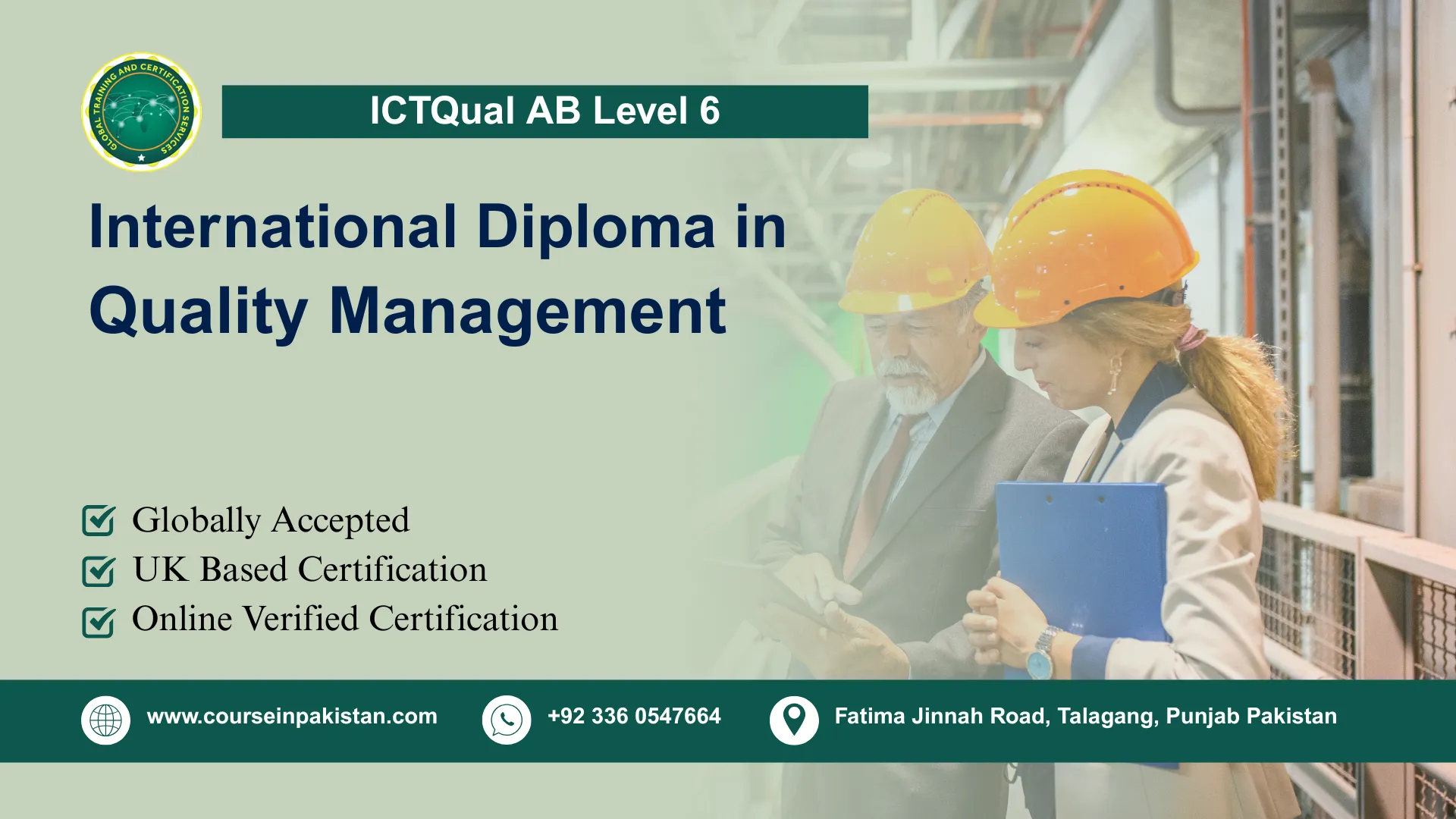
Through a blend of theoretical learning and practical case studies, learners will develop the ability to design, implement, and evaluate quality management systems that meet international benchmarks. The program emphasizes leadership, strategic decision-making, and innovation in managing quality across diverse industries. Graduates will be well-prepared to take on senior roles in quality assurance, compliance, and operations, or to advance to higher academic qualifications in management and quality-focused disciplines.
The ICTQual AB Level 6 International Diploma in Quality Management is a globally recognized qualification designed for professionals and aspiring leaders who want to excel in the field of quality assurance, control, and continuous improvement. As industries worldwide prioritize efficiency, compliance, and customer satisfaction, this diploma equips learners with advanced knowledge and practical expertise to develop, implement, and sustain effective quality management systems (QMS) across diverse sectors.
Course Overview
The ICTQual AB Level 6 International Diploma in Quality Management is a comprehensive and internationally recognized qualification designed to provide learners with advanced knowledge and practical skills in quality assurance, process improvement, and organizational excellence. This 360-credit, fully assignment-based program offers flexible learning, allowing candidates to study at their own pace from anywhere in the world. Fresh learners are required to complete all 36 mandatory assignments within three years, gaining expertise in areas such as quality systems, risk management, auditing, compliance, and continuous improvement methodologies.
For experienced professionals, the diploma provides an accelerated pathway. Candidates with at least six years of verifiable relevant experience can achieve the qualification in a shorter timeframe by demonstrating their expertise through professional discussion meetings with an ICTQual AB Approved assessor, without completing all mandatory assignments. This qualification is British Council verificable, MOFA and Embassy attestable, making it ideal for career advancement, international employment, and iqama approval. The ICTQual AB Level 6 International Diploma in Quality Management prepares learners for senior roles in quality assurance, operational excellence, and strategic leadership across diverse industries worldwide.
Key Highlights of the Course:
- Comprehensive coverage of global quality management standards, including ISO, TQM, and Six Sigma methodologies.
- Focus on strategic leadership, risk management, auditing, and process improvement for organizational excellence.
- Practical learning approach through real-world applications, case studies, and industry-relevant practices.
- Prepares learners for senior roles such as Quality Manager, Compliance Officer, or Process Improvement Leader.
- Equips professionals with the skills to foster a culture of quality, innovation, and continuous improvement in global industries.
Course Benefits
Global Recognition
- Earn an internationally respected qualification in quality management.
- Access career opportunities across multiple sectors worldwide.
Advanced Knowledge & Skills
- Gain expertise in ISO standards, TQM, Six Sigma, and compliance frameworks.
- Develop strong auditing, risk management, and process improvement skills.
Leadership Development
- Enhance strategic decision-making and problem-solving abilities.
- Build the leadership skills needed to manage quality systems effectively.
Career Progression
- Prepare for senior-level roles such as Quality Manager or Compliance Officer.
- Strengthen your professional profile for global job markets.
Practical Application
- Apply learning through real-world case studies and industry-relevant examples.
- Implement continuous improvement strategies within your organization.
Course Study Units
This qualification, the ICTQual AB Level 6 International Diploma in Quality Management, consists of 36 mandatory units.
Year 1 – Foundations of Quality Management
- Principles of Quality Management and Assurance
- Fundamentals of Organisational Excellence
- Business Law, Compliance, and Regulatory Frameworks
- Introduction to Operations and Process Management
- Workplace Health, Safety, and Risk Control
- Quality Tools, Techniques, and Measurement Basics
- Data Analysis and Research Methods in Quality
- Business Communication and Professional Reporting
- Leadership Fundamentals in Quality-Driven Organisations
- Information Technology for Quality and Operations
- Problem-Solving and Decision-Making in Business Contexts
- Corporate Social Responsibility and Ethical Quality Practices
Year 2 – Applied Quality and Organisational Practices
- Total Quality Management (TQM) Principles and Applications
- Lean Management and Six Sigma Methodologies
- International Standards and Certification Frameworks (e.g., ISO)
- Advanced Risk Management and Compliance in Quality Systems
- Performance Management and Organisational Measurement
- Human Resource Management in Quality-Focused Organisations
- Supply Chain Quality and Vendor Management
- Quality Auditing and Continuous Improvement Processes
- Project and Programme Management in Quality Environments
- Strategic Marketing and Quality in Global Markets
- Ethics, Governance, and Sustainability in Quality Systems
- Innovation and Change Management for Quality Professionals
Year 3 – Advanced Strategic Quality Leadership
- Strategic Management for Quality and Business Growth
- Advanced Quality Theories, Models, and Practices
- Global Excellence Frameworks (EFQM, Baldrige, etc.)
- Leadership, Change, and Organisational Transformation
- Quality in Digital Transformation and Smart Technologies
- International Trade, Policy, and Quality Assurance
- Crisis Management and Business Continuity in Quality Systems
- Emerging Trends in Global Quality and Sustainability
- Advanced Research Methods in Quality and Organisational Studies
- Dissertation / Final Research Project in Quality Management
- Global Business Strategy and Competitive Advantage through Quality
- Future of Quality Management and Industry 4.0 Integration
Learning Outcomes
Year 1 – Foundations of Quality Management
Principles of Quality Management and Assurance
- Understand the key principles of quality management and assurance systems
- Apply core concepts to improve business processes and customer satisfaction
- Evaluate the role of quality assurance in organizational performance
Fundamentals of Organisational Excellence
- Analyze models of excellence for business performance improvement
- Identify drivers of organizational success in quality-focused contexts
- Apply frameworks to enhance culture, efficiency, and competitiveness
Business Law, Compliance, and Regulatory Frameworks
- Interpret national and international business laws and compliance obligations
- Apply legal principles to quality and operational frameworks
- Evaluate the impact of regulation on organizational quality standards
Introduction to Operations and Process Management
- Understand process design, operations planning, and control mechanisms
- Apply operational strategies to improve efficiency and effectiveness
- Analyze process flows to identify improvement opportunities
Workplace Health, Safety, and Risk Control
- Demonstrate knowledge of workplace health and safety legislation
- Assess risks in workplace environments and propose mitigation measures
- Apply health and safety practices to support quality and compliance
Quality Tools, Techniques, and Measurement Basics
- Understand the use of essential quality tools and measurement methods
- Apply statistical and non-statistical tools to real-life quality issues
- Evaluate data outputs to support informed decision-making
Data Analysis and Research Methods in Quality
- Understand research methodologies relevant to quality management
- Apply quantitative and qualitative tools for business analysis
- Present findings to support evidence-based improvement strategies
Business Communication and Professional Reporting
- Develop advanced communication skills for business contexts
- Prepare professional reports with clarity and accuracy
- Present data and ideas effectively to diverse stakeholders
Leadership Fundamentals in Quality-Driven Organisations
- Understand leadership theories and styles within quality contexts
- Apply leadership principles to motivate and manage teams
- Evaluate the impact of leadership on organizational culture and performance
Information Technology for Quality and Operations
- Understand IT applications for quality and operational processes
- Apply digital tools to improve data management and reporting
- Evaluate the role of IT in efficiency, accuracy, and transparency
Problem-Solving and Decision-Making in Business Contexts
- Apply structured models of problem-solving in organizational settings
- Use decision-making frameworks to address complex quality issues
- Evaluate solutions for effectiveness and long-term impact
Corporate Social Responsibility and Ethical Quality Practices
- Understand CSR and ethics in the context of quality management
- Apply sustainable practices to organizational operations
- Evaluate ethical issues in decision-making and compliance frameworks
Year 2 – Applied Quality and Organisational Practices
Total Quality Management (TQM) Principles and Applications
- Understand TQM philosophies and methodologies
- Apply TQM to promote customer focus and continuous improvement
- Evaluate organizational performance through TQM practices
Lean Management and Six Sigma Methodologies
- Understand the principles of Lean and Six Sigma methodologies
- Apply process improvement tools to reduce waste and variation
- Analyze outcomes using Lean Six Sigma statistical methods
International Standards and Certification Frameworks (e.g., ISO)
- Understand global certification standards such as ISO 9001
- Apply requirements for implementation and certification processes
- Evaluate the role of standards in international business competitiveness
Advanced Risk Management and Compliance in Quality Systems
- Analyze advanced risk assessment and control frameworks
- Apply compliance practices to manage organizational risks
- Evaluate effectiveness of integrated risk and compliance strategies
Performance Management and Organisational Measurement
- Understand performance measurement models and frameworks
- Develop and use KPIs to monitor organizational effectiveness
- Evaluate outcomes to guide business improvement strategies
Human Resource Management in Quality-Focused Organisations
- Understand HRM practices in quality-driven organizations
- Apply strategies for employee engagement and capability development
- Evaluate HRM’s role in sustaining organizational quality
Supply Chain Quality and Vendor Management
- Understand supply chain quality assurance principles
- Apply vendor assessment and evaluation processes
- Evaluate supply chain risks and develop improvement strategies
Quality Auditing and Continuous Improvement Processes
- Understand the principles of internal and external quality audits
- Apply auditing techniques to assess compliance and performance
- Develop continuous improvement strategies based on audit findings
Project and Programme Management in Quality Environments
- Understand project management principles within quality contexts
- Apply methodologies to manage quality-related projects effectively
- Evaluate outcomes of projects against organizational objectives
Strategic Marketing and Quality in Global Markets
- Understand the relationship between quality and customer satisfaction
- Apply quality-focused strategies to global marketing initiatives
- Evaluate global markets to align quality with customer expectations
Ethics, Governance, and Sustainability in Quality Systems
- Understand ethical frameworks and governance practices
- Apply sustainability principles in organizational quality systems
- Evaluate governance models for long-term organizational integrity
Innovation and Change Management for Quality Professionals
- Understand the role of innovation in quality improvement
- Apply change management frameworks to organizational transformation
- Evaluate the success of innovation and change strategies
Year 3 – Advanced Strategic Quality Leadership
Strategic Management for Quality and Business Growth
- Understand strategic management concepts in quality contexts
- Apply quality-driven strategies to business growth initiatives
- Evaluate long-term outcomes of strategic planning
Advanced Quality Theories, Models, and Practices
- Understand advanced models and theories of quality
- Apply theoretical frameworks to complex organizational contexts
- Evaluate the effectiveness of advanced quality practices
Global Excellence Frameworks (EFQM, Baldrige, etc.)
- Understand global excellence frameworks for benchmarking performance
- Apply assessment models to evaluate organizational maturity
- Compare and analyze different excellence frameworks in practice
Leadership, Change, and Organisational Transformation
- Understand leadership’s role in organizational change
- Apply strategies for transformation in dynamic environments
- Evaluate outcomes of change initiatives on culture and performance
Quality in Digital Transformation and Smart Technologies
- Understand digital technologies impacting quality systems
- Apply smart tools to enhance quality management processes
- Evaluate the benefits of digital integration for competitiveness
International Trade, Policy, and Quality Assurance
- Understand policies influencing international trade and quality assurance
- Apply global quality requirements to trade practices
- Evaluate the role of policy in shaping international competitiveness
Crisis Management and Business Continuity in Quality Systems
- Understand crisis management frameworks and planning
- Apply strategies to maintain business continuity under disruptions
- Evaluate resilience of quality systems during crisis scenarios
Emerging Trends in Global Quality and Sustainability
- Identify emerging global trends in quality management
- Apply innovative practices for sustainable business development
- Evaluate their potential impact on organizational competitiveness
Advanced Research Methods in Quality and Organisational Studies
- Understand advanced research methodologies and tools
- Apply research techniques to complex quality issues
- Evaluate and present findings for academic and professional use
Dissertation / Final Research Project in Quality Management
- Design and conduct independent research in quality management
- Apply suitable methodologies for data collection and analysis
- Present original findings contributing to professional knowledge
Global Business Strategy and Competitive Advantage through Quality
- Understand strategies for global competitiveness through quality
- Apply business strategy frameworks to international contexts
- Evaluate the role of quality as a driver of sustainable advantage
Future of Quality Management and Industry 4.0 Integration
- Understand Industry 4.0 technologies and their impact on quality
- Apply integration strategies to adapt quality systems for the future
- Evaluate long-term opportunities and challenges of digital transformation
Who is This Course For?
Aspiring Quality Management Professionals
- Individuals seeking to build a strong foundation in quality systems, assurance, and continuous improvement.
- Learners aiming to advance into supervisory or managerial roles in quality-focused environments.
Mid-Career Professionals and Practitioners
- Employees already working in quality assurance, compliance, or operations who want to enhance their expertise.
- Professionals seeking to gain advanced knowledge of global standards, risk management, and process optimization.
Business Leaders and Managers
- Managers who want to integrate quality principles into business strategy and drive organizational excellence.
- Leaders responsible for improving efficiency, sustainability, and customer satisfaction in their organizations.
Graduates and Academic Progressors
- Bachelor’s degree holders or diploma graduates wishing to specialize in quality management at an advanced level.
- Learners planning to progress toward postgraduate study, certifications, or professional recognition in quality.
Industry Specialists and Consultants
- Professionals working in industries such as manufacturing, healthcare, IT, education, or services where quality is critical.
- Consultants aiming to expand their skill set to include international quality frameworks and excellence models.
Future Progression
- Career Advancement – Progress into senior roles such as Quality Manager, Compliance Officer, Risk Manager, or Operations Excellence Leader across diverse industries.
- Professional Certifications – Pursue internationally recognized certifications such as ISO Lead Auditor, Six Sigma Black Belt, or EFQM Excellence Assessor.
- Academic Progression – Continue studies at postgraduate level, including Master’s degrees (MBA, MSc in Quality Management, or related fields).
- Specialization Opportunities – Advance into niche areas like Digital Quality Management, Sustainability in Quality Systems, or Industry 4.0 Integration.
- Consultancy and Leadership Roles – Transition into quality consultancy, advisory, or strategic leadership positions, contributing to global organizational excellence.
Academic Pathways:
- Progress to a Master’s Degree such as MSc in Quality Management, MSc in Operations Management, or MBA with a focus on Quality and Leadership.
- Enroll in Postgraduate Diplomas or Certificates in specialized fields like Risk Management, Total Quality Management (TQM), or Business Excellence.
- Advance towards Doctoral Studies (DBA or PhD) in Quality Management, Business Administration, or Organisational Leadership for academic and research careers.
- Complement studies with Professional Development Programs and industry-recognized qualifications such as Six Sigma Black Belt, ISO Lead Auditor, or Lean Management certifications.
Conclusion
The ICTQual AB Level 6 International Diploma in Quality Management is a transformative qualification that empowers learners with the advanced knowledge, practical skills, and strategic insight needed to excel in the global business landscape. By combining theoretical foundations with real-world applications, this program prepares graduates to lead quality initiatives, drive continuous improvement, and foster organizational excellence across industries. Whether learners aspire to progress academically, achieve professional certifications, or take on senior leadership roles, this diploma provides a solid platform for long-term success and global recognition in the field of quality management.

